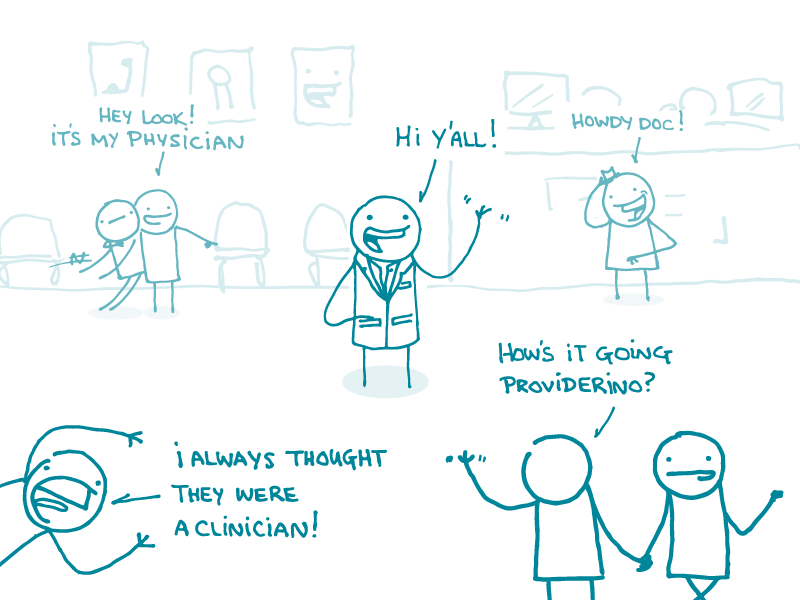
Let’s kick off this post with a fill-in-the-blank exercise:
- “I’m feeling sick. I think I’ll go see my ______.”
- “An apple a day keeps the ______ away.”
- “Just what the ______ ordered.”
For now, keep your answers to yourself. And no cheating! We’ll come back to them later.
This week we’re addressing a question we get a lot at We ❤ Health Literacy Headquarters. When writing about health care professionals for a general audience, is it best to say “doctor,” “provider,” or something else altogether?
Technically speaking, titles depend on degrees (obvs). But unless you’re staring at a framed diploma, knowing the best way to refer to a health care professional can be tough. Our advice is to keep it simple and go with what most people use in everyday conversation: “doctor.”
Yes, there’s technically a difference between a doctor, physician, clinician, nurse practitioner, psychologist, physician assistant, and so on. But when people are feeling sick, they just go to “see a doctor.” This is not the time to pull rank.
Of course, we do make exceptions sometimes. For example:
- It might make sense to use “doctor or nurse” when talking about primary care (although repeating that phrase can make your content clunky, so use it sparingly)
- If you’re writing about something super specific, like childbirth, it’s fine to say “doctor or midwife” — especially if you define for your audience what exactly a midwife does
Now, think about your answers to the fill-in-the-blank questions above. You answered “doctor” for all of them, right? In other words, using plain language just means that you write how you speak.
The bottom line: Don’t be afraid to refer to different kinds of health care professionals as “doctor.” Plain language is on your side.
Browse recent posts